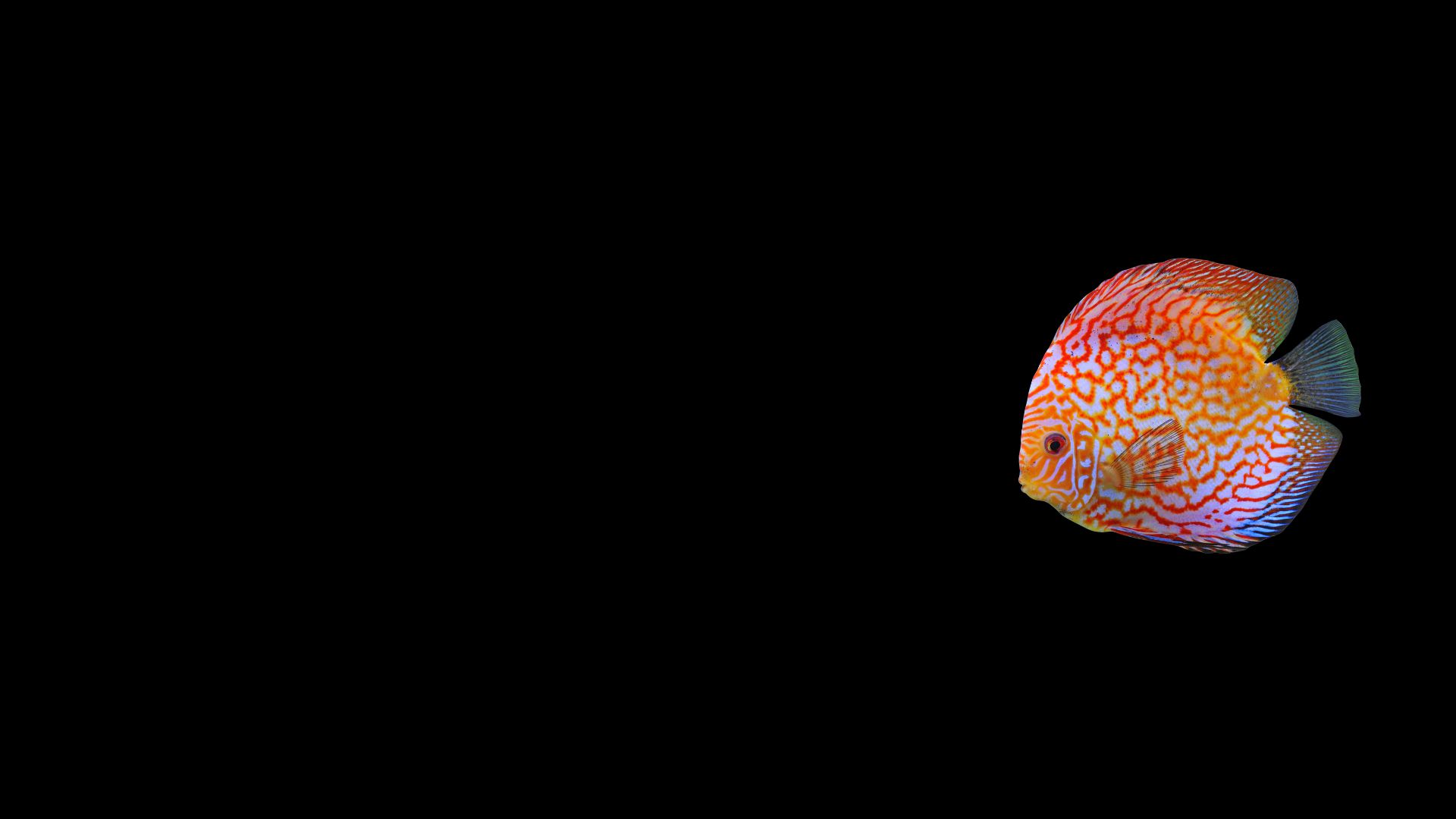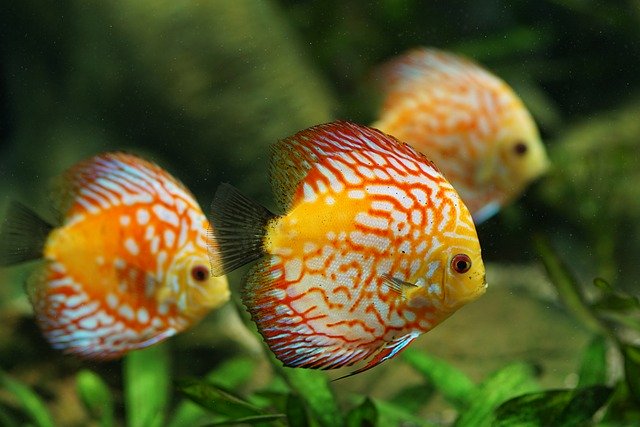
Discus Fish
Scientific name: Symphysodon spp.
The Discus Fish is a vibrant and graceful freshwater fish native to the Amazon River basin in South America. Renowned for their round, laterally compressed bodies and striking coloration, Discus Fish are often referred to as the “kings” of the aquarium world.
Their colors range from deep reds and bright blues to shimmering greens and yellows, often adorned with intricate patterns and striations that make them a standout addition to any tank.
IUCN Red List of Threatened Species : Not Evaluated
Discus Fish are social creatures that thrive in groups of at least five or more. They prefer calm, slow-moving waters and are best kept in a well-planted tank that mimics their natural habitat. Tall plants, driftwood, and subdued lighting create an ideal environment for them. They are sensitive to water conditions, so maintaining pristine water quality with regular water changes is essential.
They are omnivorous and require a varied diet to maintain their vibrant colors and health. High-quality flake or pellet food should be supplemented with live or frozen foods like bloodworms, brine shrimp, and beef heart preparations. Feeding should be done carefully to avoid overfeeding and maintain water quality.

Navite Location
South America (Amazon River Basin in Brazil, Peru, and Colombia)
Varieties
Red / Blue / Green / Heckel / Pigeon Blood / Turquoise
Suggested Tank Mates
Cardinal Tetras / Rummy Nose Tetras / Corydoras Catfish / Apistogramma Dwarf Cichlids / Bristlenose Plecos
Tank Mates to Avoid
Aggressive or territorial fish / Large Cichlids / Fast-swimming species that may outcompete them for food / Fin-nippers like Tiger Barbs
Diet
High-quality flake or pellet food formulated for Discus / Live or frozen foods (bloodworms, brine shrimp, beef heart) / Occasional vegetable matter (blanched spinach or peas)
Breeding
Discus Fish are open breeders that prefer to lay their eggs on flat, vertical surfaces like broad plant leaves or aquarium glass. Breeding requires optimal water conditions: soft, acidic water with temperatures around 29°C (84°F).
Lifespan
Up to 10 years with proper care
Size
Up to 15 cm (6 inches) in diameter
Minimum Tank Size
55 gallons (208 liters) for a small group
Optimum Tank Temperature
28°C to 31°C (82°F to 88°F)
Ideal pH Level
5.0 to 6.5
Water Hardness
1 – 4 dGH (soft water)
Common Health Issues
Hole-in-the-Head Disease (Hexamitiasis) / Ich (White Spot Disease) / Parasitic Infections / Bacterial Infections / Stress-related illnesses due to poor water quality
Interesting facts
Parental Care
Unlike many fish species, Discus Fish exhibit strong parental instincts. Both parents are involved in raising the fry, which feed on nutrient-rich mucus secreted from the parents’ skin.
Color Variations
Selective breeding has resulted in a wide array of color morphs and patterns, making them highly sought after by enthusiasts.
Sensitive to Water Conditions
Discus Fish are often considered an indicator species for water quality due to their sensitivity to changes in water parameters.
Social Hierarchy
They establish a pecking order within their group, which can influence feeding and behavior.
Communication
Discus Fish communicate through body language and subtle color changes, especially during mating rituals.
Discus Fish FAQ’s
Are Discus Fish Hard to Keep?
Yes, Discus Fish are considered challenging to keep due to their specific water quality requirements and sensitivity to environmental changes. They need warm, soft, and slightly acidic water, along with excellent filtration and regular maintenance to keep nitrate levels low. Their diet also requires careful attention to ensure they receive adequate nutrition without fouling the water. They are best suited for experienced aquarists who are committed to providing the meticulous care they need to thrive.
